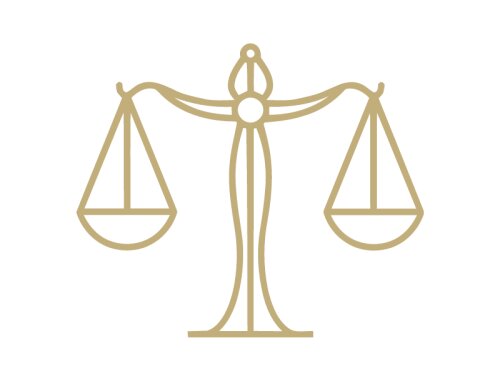Best Employment Benefits & Executive Compensation Lawyers in Rijswijk
Share your needs with us, get contacted by law firms.
Free. Takes 2 min.
List of the best lawyers in Rijswijk, Netherlands
About Employment Benefits & Executive Compensation Law in Rijswijk, Netherlands
Employment benefits and executive compensation law in Rijswijk covers the rules and regulations that determine what employees and executives receive apart from their standard salary. This includes pensions, bonuses, stock options, company cars, health insurance, and termination payments, among others. The law oversees both mandatory and optional benefits that employers must provide, as well as the taxation and legal structures surrounding executive pay. In Rijswijk, as in the rest of the Netherlands, these matters are shaped by Dutch national law, European Union directives, and specific local market practices.
Why You May Need a Lawyer
Navigating the complexities of employment benefits and executive compensation can be challenging. People may require legal assistance for various reasons, including negotiating a job offer, understanding the tax implications of benefits, resolving disputes over bonuses or pensions, or ensuring that a compensation package complies with Dutch law. Lawyers can also help in cases involving unfair dismissal, non-compete clauses tied to equity compensation, or changes to benefits after corporate restructuring. For executives, legal advice is crucial when negotiating severance agreements or understanding the risks in performance-based pay schemes.
Local Laws Overview
Dutch employment law is highly protective of employees, including those working in Rijswijk. Key aspects include the mandatory participation in social security and pension schemes, equal treatment in the workplace, and strict rules on termination. Employees are generally entitled to vacation days, sick leave, parental leave, and holiday allowance. Executive compensation is subject to corporate governance codes, and excessive pay can be scrutinized, especially in listed companies or regulated sectors like finance. Benefits often must be clearly detailed in employment contracts, and any changes typically require employee consent. Taxes must also be carefully considered, as benefits in kind and bonuses are taxable income in most cases.
Frequently Asked Questions
What types of benefits are common for employees in Rijswijk?
Common benefits include holiday allowance, pensions, overtime pay, healthcare coverage, disability insurance, company cars, and education reimbursement.
Are all employees legally entitled to the same benefits?
No, legal entitlement depends on the employment contract, collective bargaining agreements, and whether the employee is full-time, part-time, or an executive. However, some benefits, such as statutory holidays and pension contributions, are generally mandatory.
What laws protect employees' benefits in Rijswijk?
Employee rights are protected mainly by the Dutch Civil Code, the Working Conditions Act, the Pensions Act, and collective bargaining agreements. EU regulations may also apply.
Can my employer change my benefits or compensation package?
Changes generally require employee consent unless allowed by a collective agreement. Unilateral changes by an employer may be contested legally if they negatively affect an employee.
Are stock options and bonuses taxed in the Netherlands?
Yes, stock options, bonuses, and most benefits in kind are taxable as part of employment income. The timing and method of taxation can be complex and may depend on specific circumstances.
How are executive compensation packages typically structured?
They often include a base salary, bonuses, long-term incentive plans (including stock options), pensions, and other perks. Packages are subject to negotiation and legal review.
What happens to my benefits if my employment is terminated?
Employees may retain certain rights, such as a notice period, severance pay, or the ability to continue pension contributions, depending on the employment contract and reason for termination.
Do Dutch laws place limits on executive compensation?
Yes, especially in publicly traded companies and the financial sector, where the Dutch Corporate Governance Code and bonus caps may apply to ensure reasonable remuneration.
What should I do if I believe my benefits have been reduced unlawfully?
Contact a specialized employment lawyer. Dutch law offers protection, and legal action may be taken to restore lost benefits or seek compensation.
Are foreign executives or employees treated differently?
Foreign employees may be eligible for the 30 percent ruling, a tax advantage for highly skilled migrants. Otherwise, local and international executives are generally subject to the same Dutch laws and benefits regulations.
Additional Resources
- Dutch Bar Association (Nederlandse Orde van Advocaten): Provides information and referrals for legal professionals specialized in employment law. - Ministry of Social Affairs and Employment (Ministerie van Sociale Zaken en Werkgelegenheid): Official resource for Dutch employment laws and regulations. - Netherlands Authority for the Financial Markets (AFM): Offers compliance guidelines for executive compensation in the financial sector. - Pension Funds and Providers: For questions about occupational pensions, contact your pension fund or provider. - Local trade unions and works councils: Can provide legal guidance and representation in employment-related matters.
Next Steps
If you need legal assistance regarding employment benefits or executive compensation in Rijswijk, start by gathering all relevant documentation, such as employment contracts and communication with your employer. Identify the specific issue you are facing. Contact a local lawyer specializing in employment law for professional advice and representation. Most lawyers offer an initial consultation to assess your needs and explain your options. You may also reach out to local trade unions or governmental agencies for initial support. Acting promptly can help protect your rights and ensure you receive the benefits and compensation you are entitled to under Dutch law.
Lawzana helps you find the best lawyers and law firms in Rijswijk through a curated and pre-screened list of qualified legal professionals. Our platform offers rankings and detailed profiles of attorneys and law firms, allowing you to compare based on practice areas, including Employment Benefits & Executive Compensation, experience, and client feedback.
Each profile includes a description of the firm's areas of practice, client reviews, team members and partners, year of establishment, spoken languages, office locations, contact information, social media presence, and any published articles or resources. Most firms on our platform speak English and are experienced in both local and international legal matters.
Get a quote from top-rated law firms in Rijswijk, Netherlands — quickly, securely, and without unnecessary hassle.
Disclaimer:
The information provided on this page is for general informational purposes only and does not constitute legal advice. While we strive to ensure the accuracy and relevance of the content, legal information may change over time, and interpretations of the law can vary. You should always consult with a qualified legal professional for advice specific to your situation.
We disclaim all liability for actions taken or not taken based on the content of this page. If you believe any information is incorrect or outdated, please contact us, and we will review and update it where appropriate.










